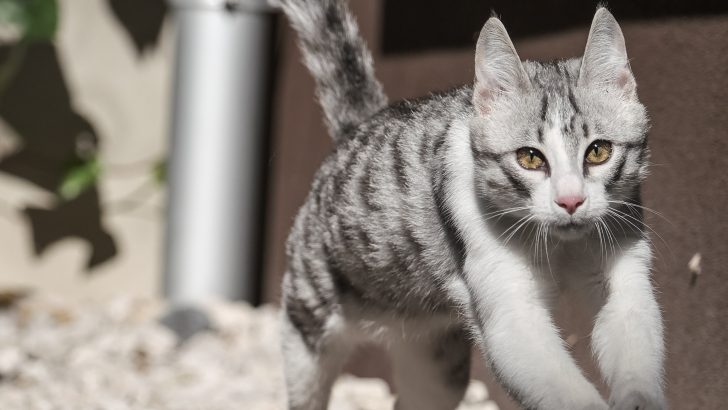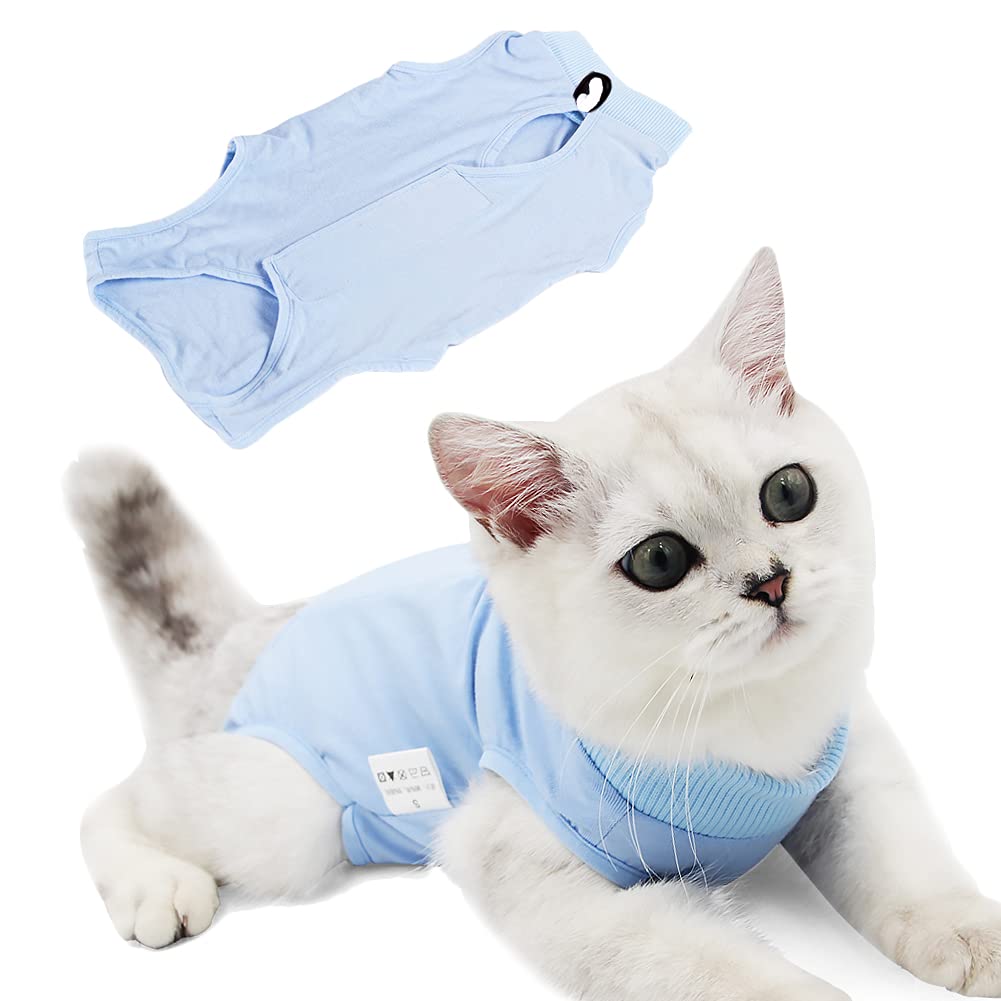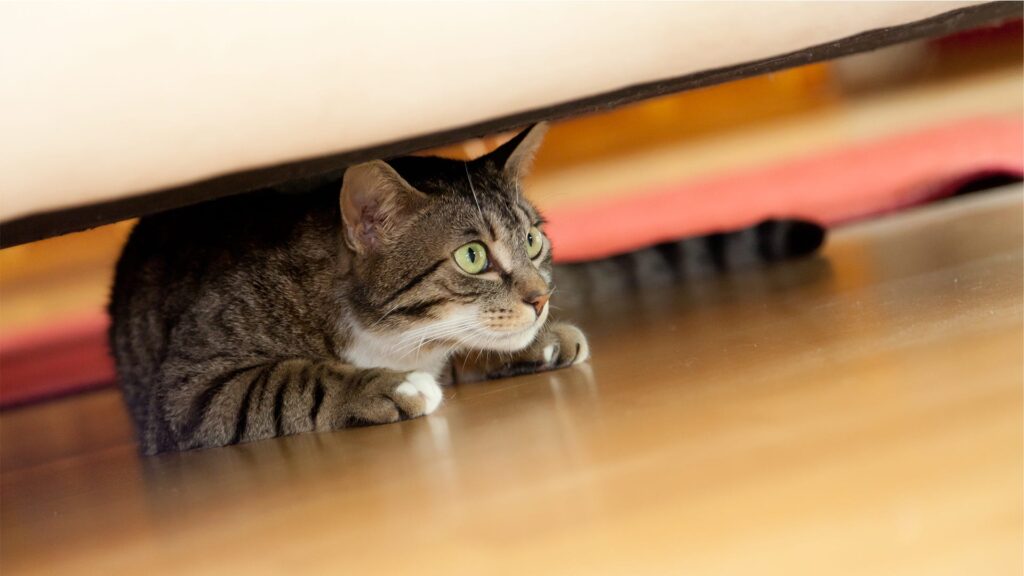Cat squinting one eye, also known as a wink, can be caused by a range of underlying issues. We will explore 12 possible causes for this behavior in cats.
From eye infections to foreign objects in the eye, understanding these triggers is key to keeping our feline friends healthy and happy. We will also look at when it is necessary to seek veterinary attention and what steps can be taken to prevent eye-related problems in cats.
So, let’s dive in and discover the various reasons behind a cat squinting one eye.

Credit: www.berkeleydogandcat.com
Contents
- 1 Common Causes Of Cat Squinting
- 2 Behavioral Causes Of Cat Squinting
- 3 Medical Conditions That Cause Cat Squinting
- 4 Other Potential Causes Of Cat Squinting
- 5 Diagnosing Cat Squinting: When To See A Vet
- 6 Treatment Options For Cat Squinting
- 7 When To Be Concerned: Potential Complications
- 8 Preventive Measures For Cat Squinting
- 9 Frequently Asked Questions For Cat Squinting One Eye: The 12 Causes Of The Wink
- 10 Conclusion
Common Causes Of Cat Squinting
Eye Infections: Cats can experience eye infections caused by bacterial, viral, or fungal agents. These infections can result in squinting, discharge from the eyes, redness, and discomfort. It is important to have your cat examined by a veterinarian to determine the appropriate treatment.
Foreign Objects in the Eye: Cats are curious creatures and may inadvertently get foreign objects, such as dust, debris, or eyelashes, in their eyes. This can cause irritation, leading to squinting and excessive blinking. It is crucial to gently flush the eye with saline solution and seek veterinary assistance if the object cannot be easily removed.
Allergies: Cats can develop allergies to various substances, including pollen, dust mites, or certain foods. These allergies may manifest as red, itchy, and watery eyes, prompting cats to squint. Identifying and avoiding the allergen, along with providing appropriate medications or treatments prescribed by a veterinarian, can help alleviate the symptoms.
Behavioral Causes Of Cat Squinting
Cat squinting with one eye can be caused by various behavioral factors, such as foreign bodies, allergies, dry eye, or infections. Other possible causes include conjunctivitis, trauma, ulcers, glaucoma, uveitis, cataracts, or neurological conditions. Identifying the underlying cause is crucial for proper treatment and to ensure your furry friend’s ocular health.
| Behavioral Causes of Cat Squinting |
|---|
|
Medical Conditions That Cause Cat Squinting
Cat squinting one eye, also known as a wink, can be caused by various medical conditions. Some of the common causes include corneal ulcers, conjunctivitis, and glaucoma. Corneal ulcers occur when there is a sore on the surface of the eye, causing discomfort and squinting. Conjunctivitis, also known as pink eye, leads to inflammation and redness of the conjunctiva, resulting in one eye being partially closed. Glaucoma, on the other hand, is a condition where increased pressure within the eye can lead to squinting and vision problems. These medical conditions can cause cats to squint one eye as a way to protect it from further irritation or pain. If you notice your cat squinting consistently, it is important to consult a veterinarian for a proper diagnosis and treatment plan.
Other Potential Causes Of Cat Squinting
Cat squinting with one eye can be caused by various factors. Other than the common causes already discussed, including eye infections, corneal ulcers, and foreign objects, there are additional potential reasons for this behavior.
Eye Trauma: Any injury to the eye, such as a scratch or impact, can lead to squinting. It’s important to examine the eye carefully to determine if there are any visible signs of trauma.
Dry Eye Syndrome: Cats can experience dry eyes due to reduced tear production. This can cause discomfort and result in squinting. Regular check-ups with a veterinarian can help identify this condition.
Blocked Tear Ducts: When tear ducts are obstructed, it can hamper the normal flow of tears, leading to eye irritation and squinting. A veterinary professional can provide guidance on appropriate treatment options.
Identifying the specific cause of a cat squinting with one eye may require a comprehensive examination by a veterinarian. Their expertise will help to implement the necessary measures to alleviate the discomfort and promote better eye health in cats.
Diagnosing Cat Squinting: When To See A Vet
Cats squinting with one eye can be a cause for concern and may indicate an underlying issue. It is important to keep an eye out for symptoms and signs that could indicate a problem. If you notice your cat frequently squinting one eye, having watery eyes, discharge, redness, or any other unusual behavior, it is crucial to seek veterinary attention. A professional examination from a qualified veterinarian can help diagnose the underlying cause of the squint. During the examination, the vet may perform diagnostic tests and procedures such as a thorough eye examination, checking for foreign bodies, corneal staining, measuring tear production, or examining the surrounding structures. These tests can help identify the specific cause of the squint, which may range from an injury or infection to more serious conditions like glaucoma or tumors.
Treatment Options For Cat Squinting
If your cat is squinting due to an eye infection or inflammation, your veterinarian may prescribe medications or eye drops to alleviate the symptoms and clear up the underlying issue. These may include antibiotics, antiviral drugs, or anti-inflammatory medications. It is crucial to follow the prescribed dosage and administer the medications as directed by the veterinarian. In addition, you may also need to gently clean your cat’s eye using a sterile saline solution to keep it free from discharge.
In certain cases, surgical intervention may be necessary to address the underlying cause of cat squinting. For example, a foreign object lodged in the eye or a tumor may require surgical removal. Your veterinarian will assess the situation and recommend the most appropriate course of action, discussing the potential risks and benefits with you.
While treatment options differ depending on the cause, it is important to provide adequate home care for your cat’s eyes. Cleanliness is crucial, so gentle cleaning with a sterile saline solution and the use of cat-safe eye wipes can help prevent eye infections and keep the eyes healthy. Additionally, regularly checking for any signs of foreign objects or debris and providing a stress-free environment can also contribute to better eye health for your feline companion.
When To Be Concerned: Potential Complications
Secondary Eye Infections: Cat squinting one eye could indicate a secondary eye infection. It is important to watch out for symptoms such as redness, discharge, and swelling around the affected eye. If you notice these signs, consult a veterinarian to prevent further complications.
Vision Impairment or Blindness: Persistent squinting may lead to vision impairment or even blindness in cats. In some cases, it could be a symptom of underlying conditions such as glaucoma or cataracts. Prompt veterinary attention is crucial to prevent permanent damage and ensure your cat’s eye health.
Chronic Pain and Discomfort: Squinting can also indicate chronic pain and discomfort in cats. It could be due to conditions like corneal ulcers or foreign objects in the eye. Ignoring these signs may lead to prolonged discomfort and potential complications, making it important to seek professional advice from a veterinarian.
Preventive Measures For Cat Squinting
Maintaining proper eye hygiene and care is crucial in preventing cat squinting. Regularly cleaning their eyes with a damp cloth or using an eye wash solution can help remove any irritants or debris that may accumulate. Gently wiping around the eyes can prevent the formation of crusts and mucus. Additionally, trimming the fur around the eyes can prevent hair from irritating the eyes.
Cats can develop squinting due to exposure to various irritants such as dust, pollen, smoke, or chemicals. Reducing their exposure to these irritants can help prevent squinting episodes. Keeping the environment clean and dust-free, using air purifiers, and avoiding smoking inside the house are essential. Minimizing their exposure to potential allergens by keeping windows closed during high pollen seasons can also be beneficial.
Scheduling regular vet check-ups is crucial for maintaining your cat’s eye health. A veterinarian can detect any underlying conditions that may be causing the squinting and provide appropriate treatment. Routine eye examinations can also help catch any potential eye problems early on, preventing further complications.
Frequently Asked Questions For Cat Squinting One Eye: The 12 Causes Of The Wink
Why Is My Cat Suddenly Squinting One Eye?
Your cat may be squinting one eye due to various reasons such as an injury, infection, foreign object, or eye irritation. It is best to consult a veterinarian for proper diagnosis and treatment.
Why Is My Cat Winking With One Eye?
Your cat may be winking with one eye due to a variety of reasons, including irritation, a foreign object, or conjunctivitis. It’s important to observe their behavior and consult a veterinarian if there are any concerning signs or if the issue persists.
Should I Worry If My Cat Is Squinting One Eye?
If your cat is squinting one eye, it could indicate an injury, infection, or foreign object. It’s important to monitor for any other symptoms and consult a veterinarian for a proper diagnosis and treatment.
What Does It Mean When A Cat Eye Is Squinting?
A squinting cat eye may indicate pain, injury, or an underlying health condition. It’s essential to consult a veterinarian for a proper diagnosis and treatment.
Conclusion
To sum up, there are various reasons why a cat may squint or wink with one eye. It could be a temporary irritation or injury, a response to bright light, or a symptom of an underlying health issue. Understanding these possible causes can help cat owners provide appropriate care and seek veterinary attention if needed.
By addressing the root cause, your feline companion can enjoy optimal eye health and overall well-being.
Katie Lindsey is a passionate cat lover and founder of Cats Solution, a comprehensive resource for all things feline. With a lifelong love for cats and extensive knowledge in their care and behavior, she provides expert advice and solutions to cat owners. Through her website, Katie fosters a supportive community where cat enthusiasts can find guidance and heartwarming stories. A dedicated advocate for animal welfare, Katie also promotes responsible pet ownership and adoption. Join her on this purr-fect journey celebrating the joy of feline companionship.



